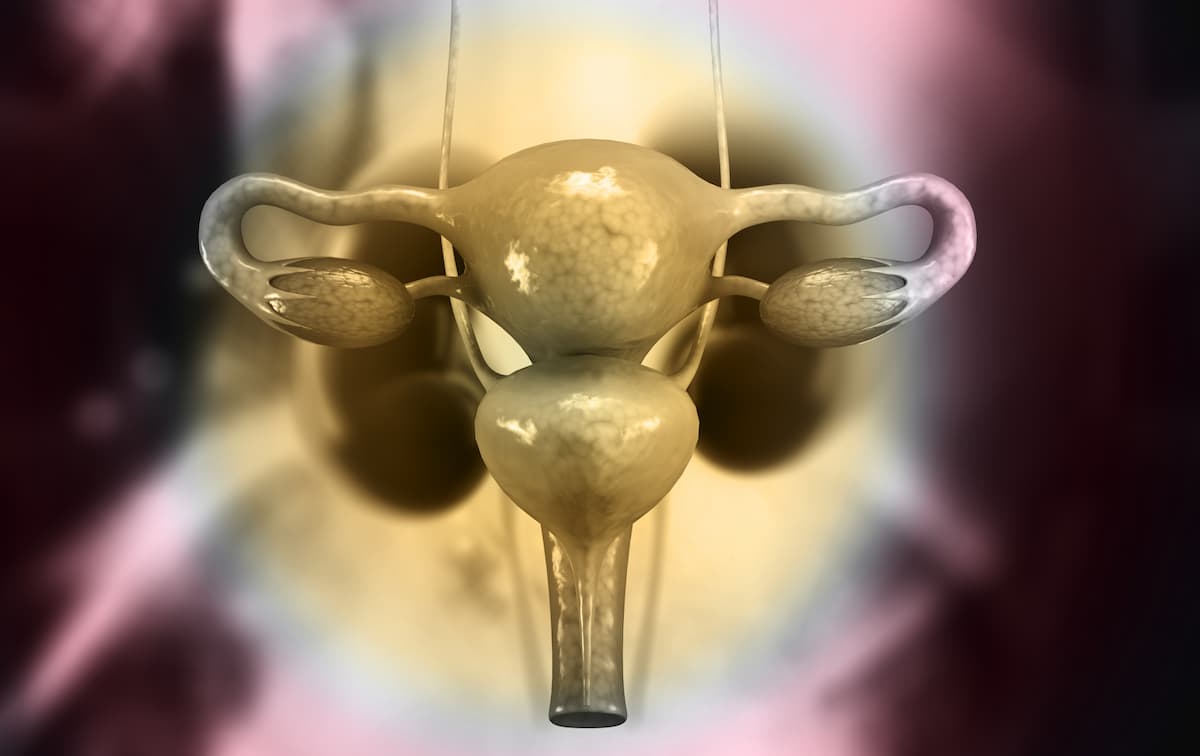Nivolumab Meets ORR/PFS24 End Points in dMMR Uterine and Ovarian Cancer
Although the sample size for this trial was small, data still highlight a potential benefit with nivolumab in dMMR uterine and ovarian cancers.
"In summary, nivolumab achieved a high ORR and durable PFS with acceptable toxicity in patients with dMMR/MSI-H recurrent endometrial or ovarian cancer," according to the study authors.

The use of nivolumab (Opdivo) to treat a small cohort of patients with uterine or ovarian cancers who have DNA mismatch repair deficiency (dMMR) met the co-primary end points of objective response rate (ORR) and progression-free survival at 24 weeks (PFS24), according to results from a phase 2 trial (NCT03241745).
The ORR was 58.8% (97.5% CI, 40.7%-100%), and the PFS24 rate was 64.7% (97.5% CI, 46.5%-100%). The median follow-up was 42.1 months, and the disease control rate was 73.5% (95% CI, 55.6%-87.1%). The median overall survival (OS) was not reached, and at 1 year, it was 79% (95% CI, 60.9%-89.4%).
“Patients benefitted from substantial disease control, with median duration of response [DOR] and OS not yet reached with nearly 3 years of median follow-up. No new safety signals were noted, although rare immune-mediated toxicities, including myocarditis and type 1 diabetes, were seen,” the authors of the study wrote.
A total of 35 patients were enrolled in the study and were given 240 mg of nivolumab every 2 weeks or 480 mg every 4 weeks until progressive disease or unacceptable toxicity. Patients enrolled in the trial had dMMR by loss of expression and were evaluated by immunohistochemistry of one of the MMR proteins; had microsatellite instability-high disease as determined by next-generation sequencing; or hypermutated tumors that included 20 or more non-synonymous somatic mutations.
The median age was 64 years old, 77% of patients were White, 11% were Black, and 6% were Asian. Overall, 83% of patients had endometrioid endometrial cancer. At diagnosis, most patients had stage III disease (34%) followed by stage I (29%). Molecular subtypes were also evaluated and included MLH1 promoter hypermethylation (66%), other or unknown (20%), and germline MMR mutations (14%).
At a median follow-up of 28 months, the median DOR was not reached. At a median follow-up of 42.1 months, the median PFS was 21.6 months (95% CI, 4.9-not evaluable).
“In dMMR/MSI colorectal cancer and melanoma, genomic alterations in antigen-presenting machinery, including loss of beta-2-microglobulin and human leukocyte antigen genes, are associated with resistance to checkpoint blockade. In this cohort, we did not note enrichment of any genomic alterations previously implicated in immunotherapy resistance, including JAK, CTNNB1, and PTEN,” the authors continued.
Treatment-related adverse effects (TRAEs) occurred in 91% of patients. The most common included arthralgia (29%), fatigue (29%), pain (29%), and pruritis (29%). Grade 3/4 TRAEs occurred in 29% of patients. These included immune-mediated toxicities like myocarditis (3%), optic neuritis (3%), hemolysis (3%), and type 1 diabetes (3%). No grade 5 AEs were noted.
One patient who developed insulin-dependent diabetes stayed on the study after her blood sugars were stabilized. Those who had non-endocrine grade 3/4 events discontinued treatment and were given steroids and other steroid-sparing immunosuppressive agents.
Two weeks after the first dose of nivolumab, 1 patient experienced grade 3 myocarditis as they presented with double vision and fatigue. When an EKG was performed, the patient presented with a complete atrioventricular block with ventricular escape rhythm. The patient was admitted to an outside cardiac clinic and treated accordingly.
“Our study had several limitations, including a small sample size and access to limited archival tissue, which limited our ability to perform additional correlative studies….In summary, nivolumab achieved a high ORR and durable PFS with acceptable toxicity in patients with dMMR/MSI-H recurrent endometrial or ovarian cancer,” the authors concluded.
Reference
Friedman CF, Manning-Geist BL, Zhou Q, et al. Nivolumab for mismatch-repair-deficient or hypermutated gynecologic cancers: a phase 2 trial with biomarker analyses. Nat Med. Published online April 23, 2024. doi:10.1038/s41591-024-02942-7
Newsletter
Stay up to date on recent advances in the multidisciplinary approach to cancer.